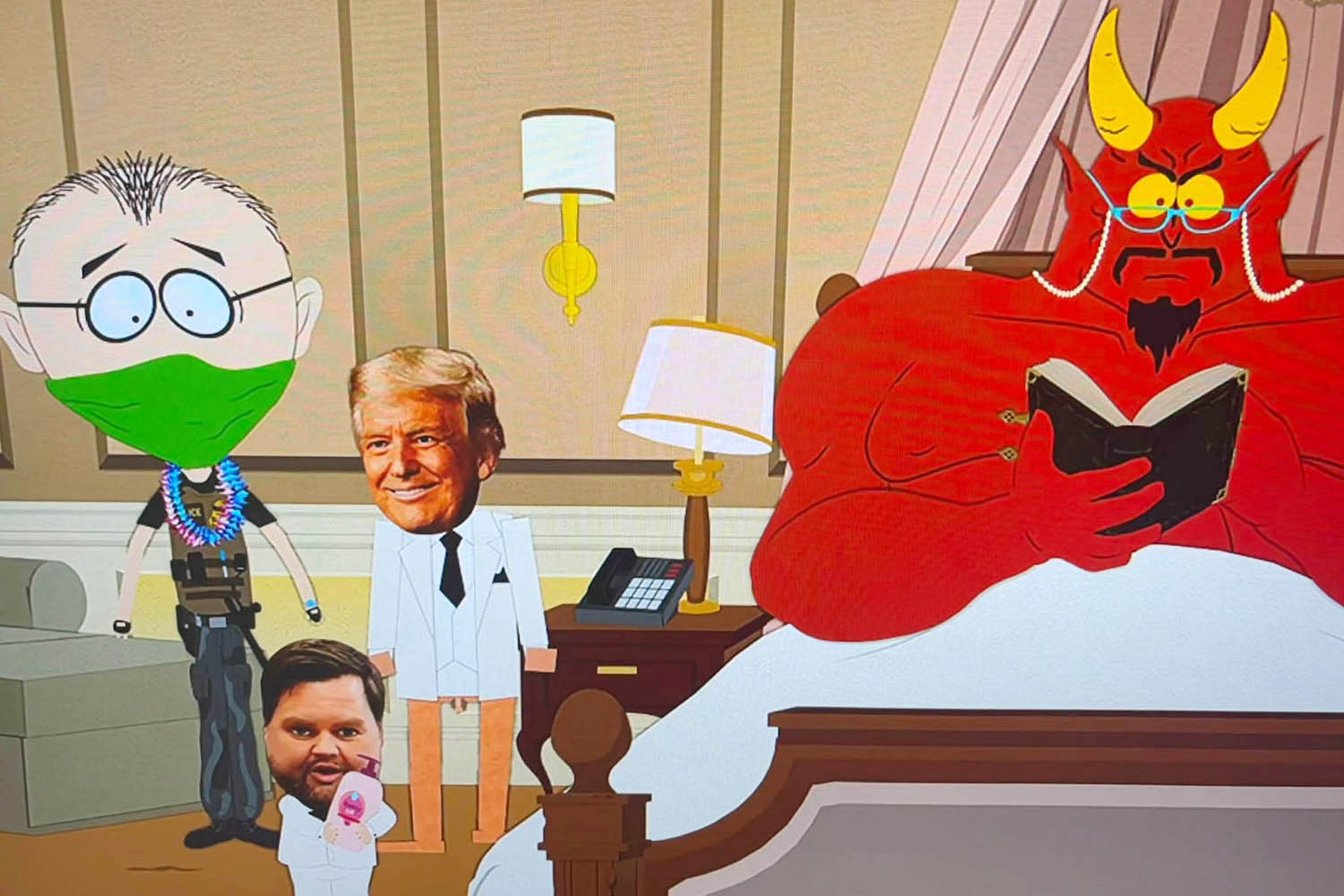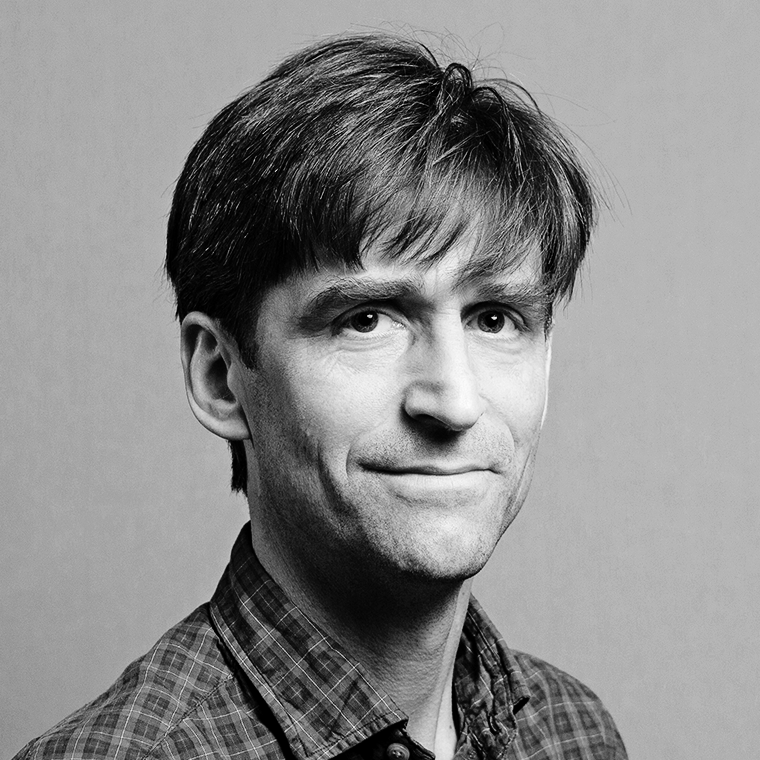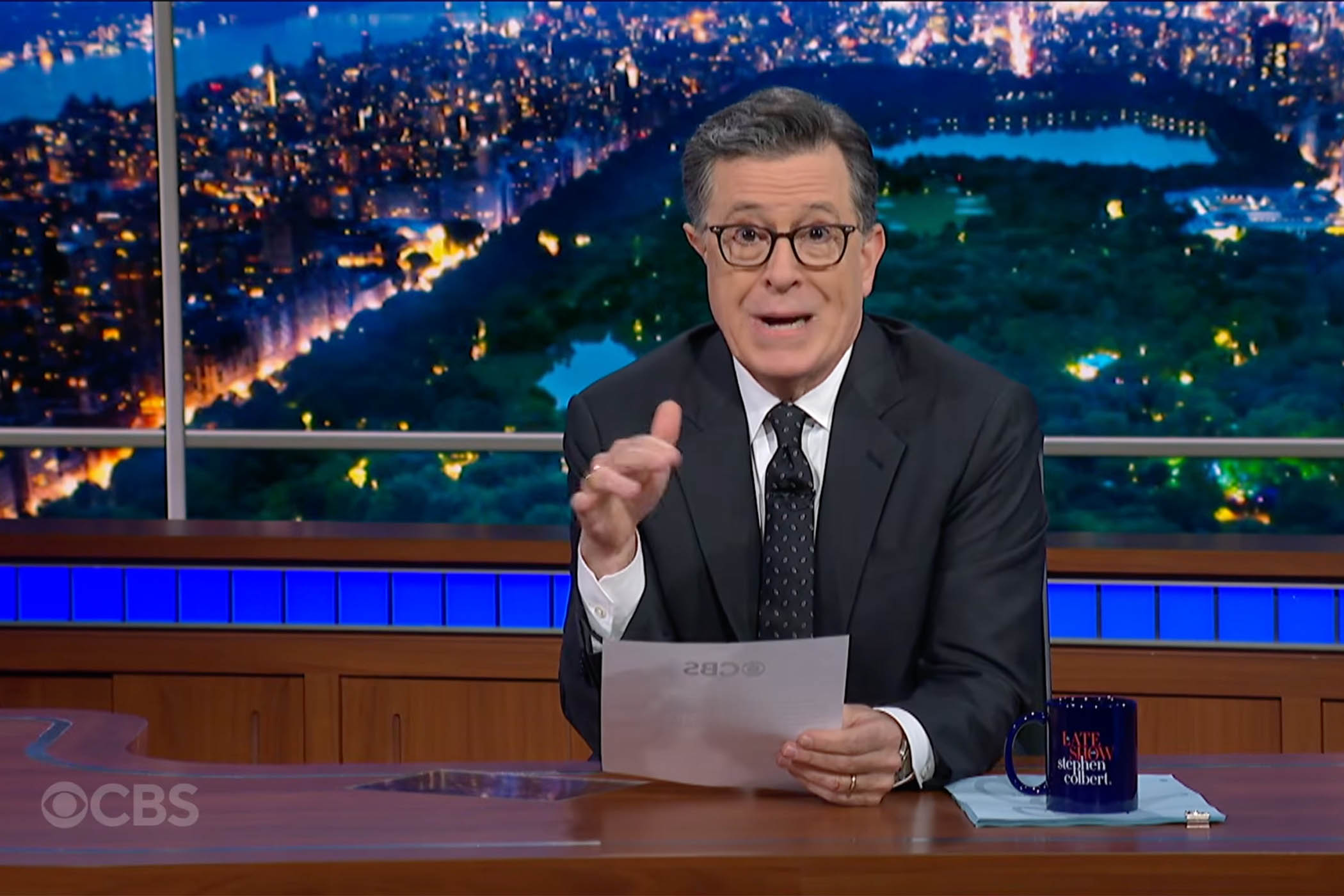Anyone bothered by Trumpian bullying can now watch Donald Trump being bullied back. In the latest episode of South Park, released last week, the leader of the free world hangs out with his friend Satan, while a sociopathic homeland security secretary shoots pets to psych-up federal agents enforcing his deportation orders. In episode one of the new series, released last month, a naked Trump is left stranded in the desert talking to his very small penis. Both episodes have been ratings hits.
Try as he might, this president has not acquired immunity from satire. In the land of the free, freedom of speech lives. But it is looking a little careworn, and not just because the job of standing up to Trump has fallen to a cartoon show on Comedy Central.
On Thursday, the completion of the $8bn buyout of Paramount by Hollywood minnow Skydance Media marked a seismic shift in the US media landscape. Power is draining from old studios and legacy news networks to streamers and Substackers, and money for journalism is controlled by a new class of billionaires who have made it very clear that profit matters most.
South Park, recently acquired by Paramount, is caught in the middle. So is CBS News, the network of Walter Cronkite and a prized Paramount possession. Both are now owned by David Ellison, heir to a $300bn software fortune and a producer of Top Gun: Maverick.
In a letter to staff that included mentions of South Park and CBS’s revered 60 Minutes franchise, Ellison ended with a note to investors. “Our financial north star is to maximise the long-term value of the company,” he wrote. “In some areas this may mean bold moves and increased investments, in others it will mean scrutinising spending to maximise margins and shareholder value.”
Paying attention to margins is common sense, but context matters. The Paramount deal was only approved after a payment of $16m to Trump to settle a lawsuit many believe he would almost certainly have lost had it come to court. The lawsuit was a complaint about the way 60 Minutes edited a promotional clip of an interview with Kamala Harris, allegedly to make her look good. Paramount’s previous owner, Shari Redstone, is now widely accused of kowtowing to the president.
“No one believes this was an ordinary settlement based on legitimate judgments,” said Seth Stern of the Freedom of the Press Foundation, which has hired lawyers for a possible lawsuit against Redstone. “This was to grease the wheels of merger approval.”
The merger has saved Paramount as a studio – for now. But even with cash injections from Ellison, it is still in an existential fight to make its TV streaming arm competitive with YouTube, Netflix, Amazon Prime and Apple TV+ – all swollen with Silicon Valley money that dwarfs anything ever generated by old Hollywood.
As for CBS News, it’s not alone in caving to a White House ploy. ABC News paid $15m to settle what was widely seen as similarly vexatious suit last year. Jeff Bezos, rather than waiting to be sued, pre-emptively vetoed a Harris election endorsement by the Washington Post and told its opinion desk to focus on “personal liberties and free markets”. Since then, at least 32 prominent writers have left the paper, the Columbia Journalism Review reported last week.
Stern says it’s no longer a stretch to liken the state of US media ownership to that of Russian media in the 1990s heyday of the oligarchs. “I don’t think we are at a point where Trump has captured the US media but he has softened it,” he said, accusing mainstream editors of self-censorship, pulling punches and “both-sidesism” – disingenuously presenting quackery and fact-based views on vaccines as equivalent, for instance.
Newsletters
Choose the newsletters you want to receive
View more
For information about how The Observer protects your data, read our Privacy Policy
Ellison has committed CBS News to reflecting “the varied ideological perspectives of American viewers”. With that in mind, he spent time last month at a media retreat in Sun Valley, Idaho, with Bari Weiss, a former New York Times writer who quit in 2020 to write a conservative Substack that morphed into the Free Press platform.
Only a generation ago, the Sun Valley retreat was a magnet for New York money and LA studio chiefs of broadly similar – and progressive – views, reliably offset by the maverick Rupert Murdoch. The world turns, and the event’s most talked about guests are now a nepo mogul from the San Francisco Bay Area worth at least 11 figures and a defector from the unofficial headquarters of American liberalism. Weiss hopes Ellison will pay upwards of $200m to be in business with her. For his part, Ellison is interested in her 1.5 million paying subscribers.
“Journalism is attracting investors who are not interested in the product but only in profitability,” said Al Tompkins, a journalism professor who cut his teeth in TV newsrooms in conservative northern Florida, and who warns fans of South Park that “shows like that put local TV stations in a pickle”, especially when they serve Republican-dominated audiences. “Day after day, they attack someone who’s politically popular.”
So will South Park survive under its new management? “If they get the ratings, they’ll do whatever they want to do.” Either way, Tompkins is not downhearted. “In the end, we’re going to have to rely on the consumer to choose,” he said. “And the public is yearning for the truth. Truth sells.”
Photograph by Paramount



